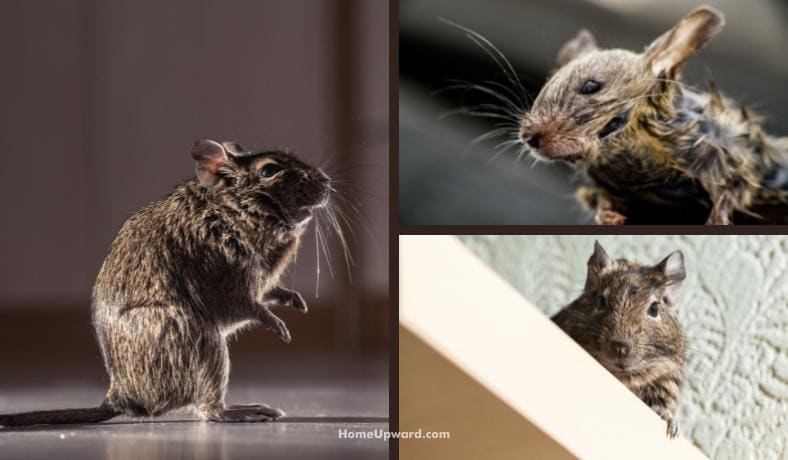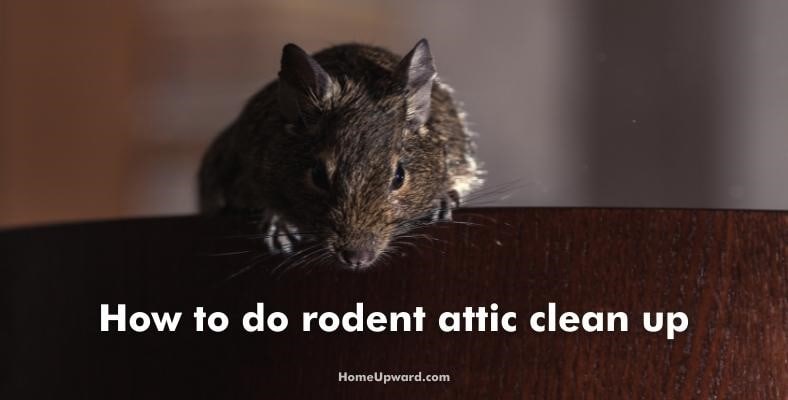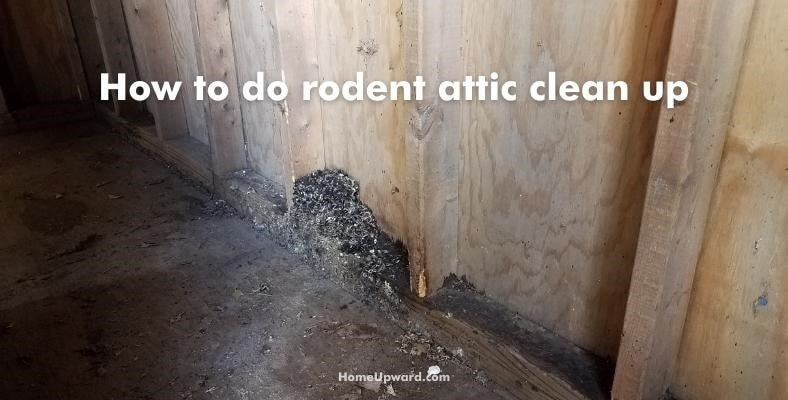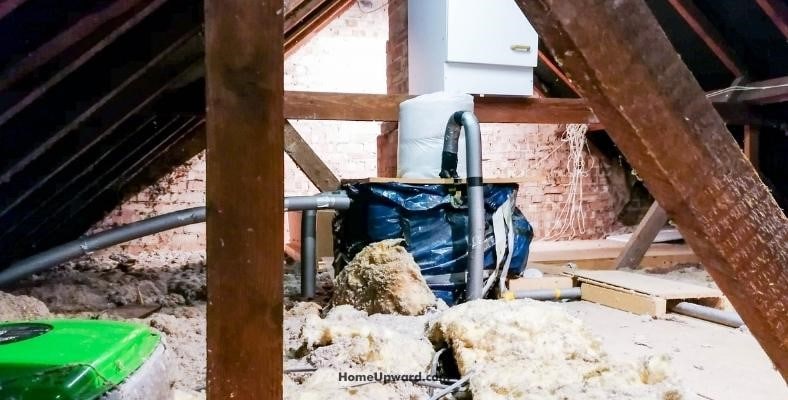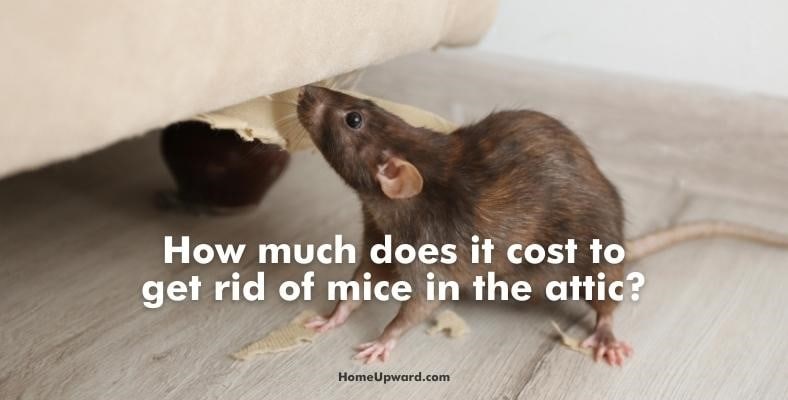Contents
How To Do Rodent Attic Clean Up
- The Centers for Disease Control and Prevention recommends trapping any remaining rodents and to keep doing so for up to a week.
- While you prepare your rodent traps, seal up any holes, cracks, or other entryways to your attic so no more rodents can get in.
- The week waiting/trapping period is very important for a rodent attic clean up. That gives you enough time to see if the living rodents have been eliminated and have moved on. It also allows enough time for the urine and feces in the attic to lose potency, meaning that any disease from rodent droppings or urine is no longer transmissible.
Of course, you don’t have to do all this yourself. You can hire a pest control service or call a wildlife removal company to handle this process and take the stress away from dealing with an infestation.
How Do I Clean My Attic After Rodents?
The first thing you should do in the cleaning process is ventilate the space. Make sure to wear a face mask, gloves, and even safety goggles in the attic space for this process.
If your attic has no way to ventilate it, meaning no windows to open, skip this step. However, no matter what, put on your gloves and mask!
How Do You Clean Up Rat Urine and Poop?
You can clean up rat droppings and urine with a disinfectant, like a bleach solution or a standard household product. When making a bleach solution, you can use one part bleach to nine or ten parts water.
- Cover all the urine and poop, as well as the rat nests, with your disinfectant, then wait at least five minutes.
- After that time has elapsed, you can use paper towels to pick up the droppings and nesting materials and double bag them all.
Do not touch rate feces directly as the droppings can transmit disease.
Is It OK to Vacuum Mice Droppings?
No! Never, ever vacuum up mouse or rat droppings before applying disinfectant. You don’t want to expose your vacuum to rodent waste in the first place – it’s dangerous for you and your family and that goes for your broom, too.
Soak the animal waste and nesting materials in disinfectant and remove it with paper towels, not a vacuum or broom.
Is Vinegar a Disinfectant for Mouse Droppings?
No, vinegar is not a good disinfectant for mouse droppings or in general use. It can sometimes kill E. coli and Salmonella, but it doesn’t get anywhere close to 99.9% of bacteria it comes in contact with.
How Long Does It Take To Get Rid of Rats in Attic Areas?
When it comes to attic decontamination from rat infestation, it can take anywhere from a few days to a week. That depends on whether you hire a rodent control professional or decide to undertake the process yourself.
As we mentioned above, it’s best to set up traps and give the trapping process a week. That way you can be sure that no rats or mice are still in your attic.
You can then begin the cleaning process which should take no more than a day based on the size of your attic and the intensity of the infestation. A pest control company can finish the project in just one day.
Is It Ok To Leave Rat Poop in the Attic?
It’s best to remove rat poop during your rodent attic clean up whether it’s fresh or dry and dusty. In fact, the rat poop dust particles that get stirred up into the air can be even more dangerous than fresh poop because you can breathe them in.
Rat poop can contain hantavirus so it should not remain in your attic space.
Can You Get Sick From Old Mouse Droppings?
Yes. As I mentioned above it’s important to wait a week between trapping and beginning the rodent cleanup process to reduce the transmissibility of any diseases found in the rodent waste/
Don’t take the chance of handling old mouse droppings without a mask and gloves. No matter how much time passes since you’ve had an unwanted visitor in your attic they can pose a potentially serious health risk.
Is Breathing Rat Urine Harmful?
Absolutely. Rat urine can contain hantavirus which humans can contract when they breathe in rat urine, feces, or saliva. Hantavirus is a respiratory disease characterized by fever, abdominal pain, nausea, diarrhea, chills, and vomiting, among other symptoms.
Rat urine can also carry leptospirosis which is a disease that can cause liver failure.
Do You Need To Replace Insulation After Mice?
In most cases, yes. If the mice have made their homes inside your insulation you’ll have contaminated insulation and it’s best to remove it. Once you’ve removed the damaged insulation or had it removed you can replace it and then make sure to implement rodent proofing in your attic space.
Can Mice Live in Attic Insulation?
Mice love insulation because the cushy material feels warm and makes them feel secure. Unfortunately, having a cozy, safe place to nest means they’re likely to reproduce. If you notice even a hint of a sign that rodents have been living in your insulation it’s time to commit to insulation removal.
You can do this yourself as long as you’re wearing protective gear. Still, it’s best to leave insulation removal to pest control professionals or wildlife removal services because they have the most experience in this area.
They’ll know exactly how to remove all contaminated material safely and thoroughly.
How Much Does It Cost To Get Rid of Mice in the Attic?
It depends on the square footage of your attic, but complete mouse or rodent removal can cost between $200 on the cheap side and up to $400 or $500 on the pricier side. It also hinges on the level of rodent invasion and where you live.
Some states and cities are pricier than others in cost of living so the price of rodent removal will likely reflect that.
How Much Does It Cost To Clean Rodent Feces?
Many pest control companies charge hourly for their cleanup services because it takes a shorter time to clean up after a less intense infestation than it does to clean up after a gnarly infestation of rodents.
One example is $250 per hour per person but depending on where you are, prices can differ. However, keep in mind that you may not have to pay all of this out of pocket – your homeowner’s insurance may cover some or all costs of attic cleaning service to eradicate any evidence of rodent habitation.
What Scents Do Mice Hate?
There are so many household items with strong smells that you can use to deter rodents and other pests from taking up lodgings in your attic. Mice along with most mammals hate scents such as:
- Peppermint
- Cinnamon
- Vinegar
- Cloves
These do a great job at discouraging mice. You can also place unused dryer sheets as part of your rodent attic clean up especially around the edges.

